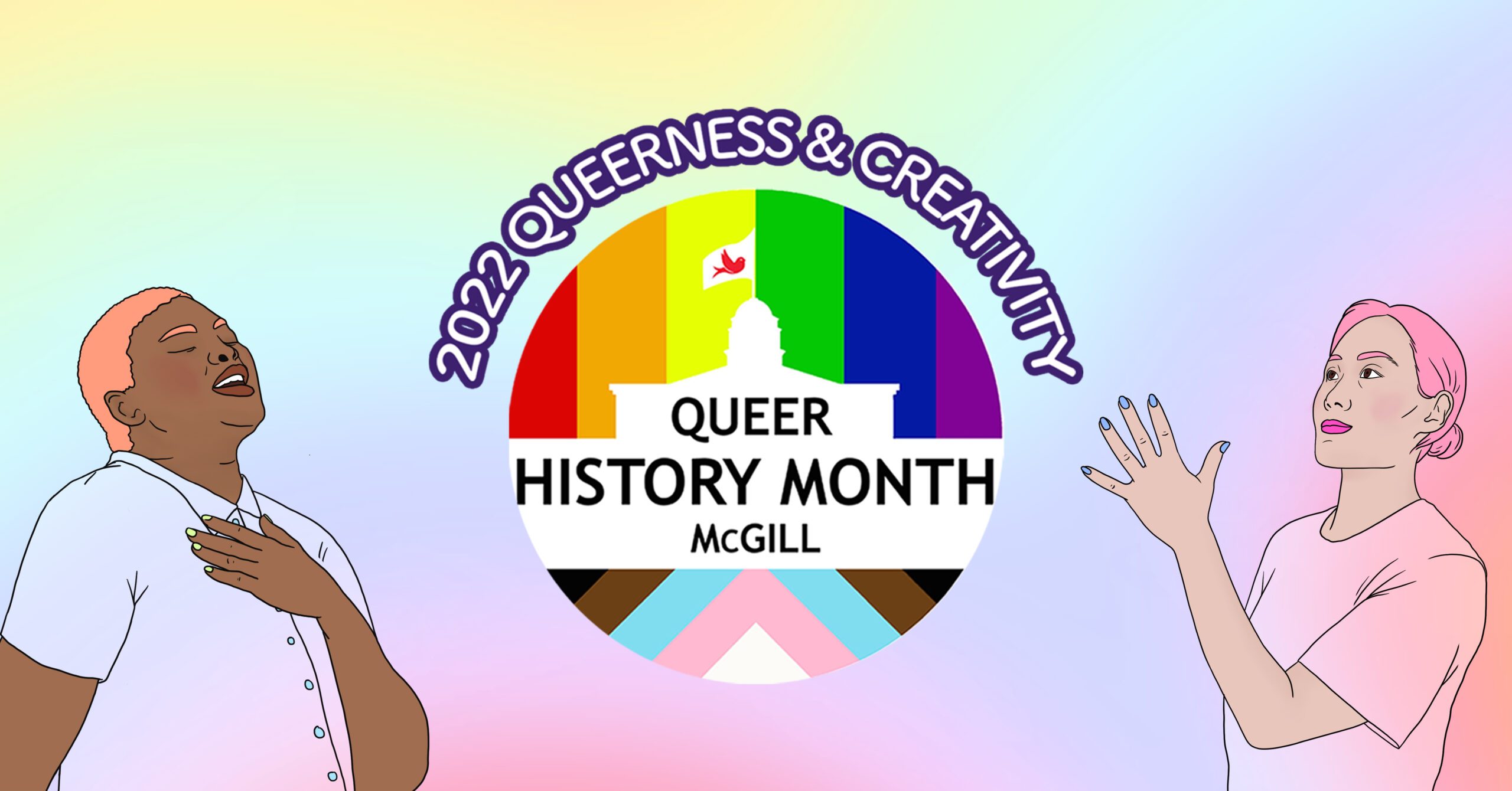
Queer History Month (QHM) at McGill has always been a celebration, beginning in 2018, when McGill became the first Canadian university to hold such an event.
However, after two years of virtual festivities, this year’s QHM promises to be something even more special.
“We have a really strong queer community at McGill and to be able to come together in person again is a really joyful experience,” says Andrea Clegg, Equity Education Advisor, Gender Equity and 2SLGBTQ+ Education. “Everyone is really looking forward to it.”
Running throughout October under the theme Queerness and Creativity, QHM will be both in-person and virtual, taking the best of both worlds. While the in-person events give people the opportunity to celebrate face to face, two virtual events will allow people to tune in from around the world. “Last year, we had participants from Europe and South America,” says Clegg. “We’re hoping to attract a similar audience this year.”
October 7 launch
QHM will kick off in person on October 7. Queer, trans non-binary, interdisciplinary creator-performer Teiya Kasahara 笠原 貞野 will deliver the keynote address (Trans)itioning Inward: Making Art with Intention, at Tanna Schulich Hall, in the Elizabeth Wirth Music Building. There will be a catered reception from 5 to 6 pm, with the event itself taking place from 6 to 7:30 pm.
“The Hall has beautiful acoustics,” says Clegg, a perfect venue for Kasahara, a trained opera singer.
The other main in-person event takes place on October 19. Part of McGill’s Homecoming programming, Return of the Rainbow brings together current and past 2SLGBTQIA+ students, staff, faculty and alumni.
Role models and mentors
QHM goes virtual on October 24, with the Trans and Nonbinary in Academia panel.
McGill professor, Lynn Kozak (History and Classical Studies), and McGill PhD candidate Rine Vieth (Anthropology) will discuss navigating academia as a trans/non-binary person.
“The McGill census was collected for the first time last year and there is a significant representation of students who identify with trans and non-binary gender identities,” says Clegg. “It’s really important to have role models like Lynn and Rine to help guide and mentor students with similar social identities.”
On October 27, QHM will close with a discussion with artist Jérôme Havre, another virtual event
“Havre’s work is in part informed by his identity as a queer and racialized person,” says Clegg. “He’ll explore whether that identity informs the art-making process or whether there’s part of that process that happens beyond that knowledge.”
Understanding the past to help inform the future
On top of the QHM programming, people can take in a series of partner events taking place throughout the month.
From October to December, visitors can view the LGBTQIA2S+ McGill Student, Faculty, and Staff Activism exhibit, on the main floor of McGill’s McLennan Library. Curated by Professor Alex Ketchum and Research Assistant Jacob Williams, the exhibit showcases the work of students, faculty, and staff who advocated for increased rights, safety, and places to thrive for LGBTQIA2S+ communities at McGill.
“QHM month is rooted in history,” says Clegg. “Understanding where we come from can help inform our current experiences and where we still need to go.”
Creating a welcoming and inclusive environment
Sadly, organizing this year’s QHM has not been without incident.
McGill’s Queer History Month Facebook page has been trolled, event registration has been spammed, and Clegg has had to deal with personal attacks online. Clegg, however, remains steadfast – and optimistic.
“These attacks came from outside the McGill community and they aren’t reflective of what’s happening at the University,” they say. “We’re in an environment where pluralistic societies are increasingly divided and there’s an increasing amount of conflict among various social groups.
“But McGill’s mission is informed by its core principals which include equity and inclusiveness,” says Clegg. “There’s always more work to be done, but I think the University is becoming a leader in creating an environment that’s welcoming and inclusive of people of varied sexual orientations and gender expressions and identities.”
Learn more about McGill Queer History Month 2022 and consult the schedule.
